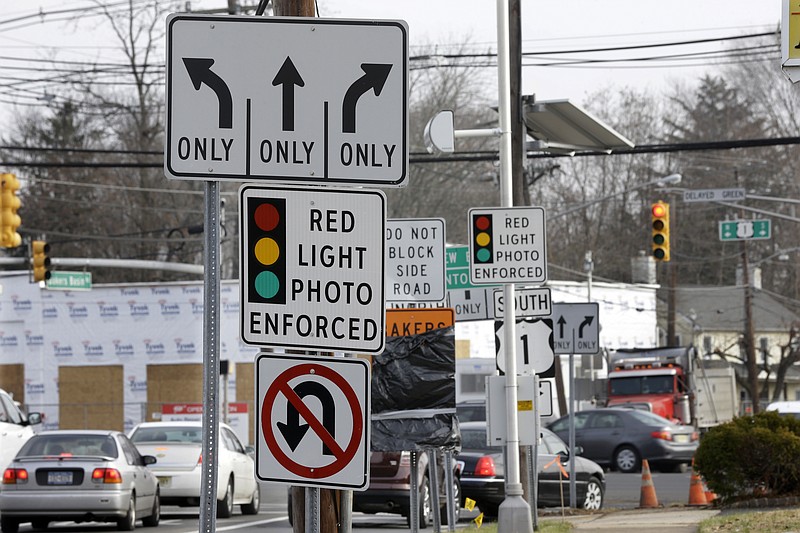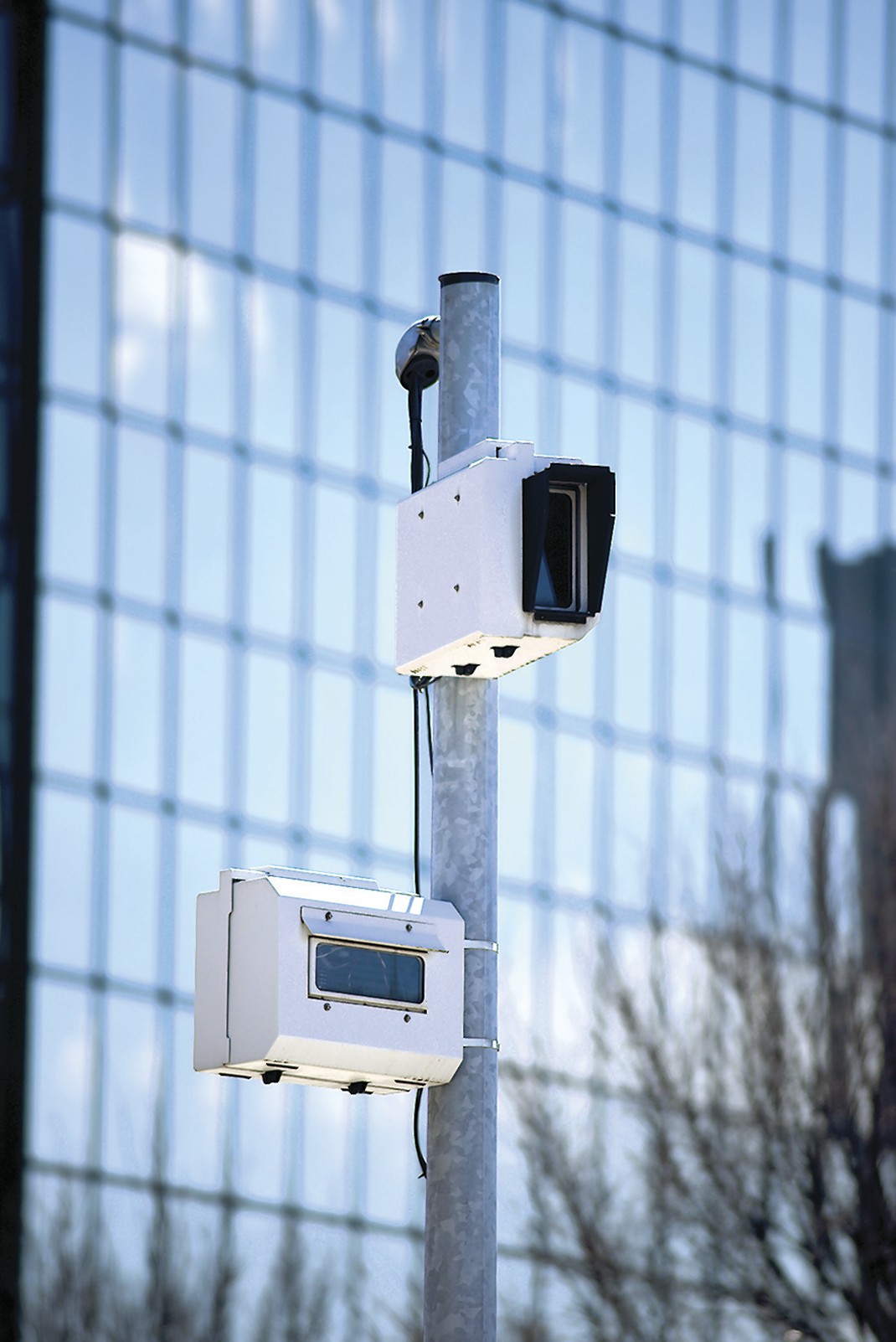NASHVILLE -- Sen. Todd Gardenhire and an unlikely group of allies believe this could be the year state lawmakers force Tennessee cities' to halt use of traffic-light and speed cameras.
The conservative Chattanooga Republican joined in a news conference Tuesday with a self-described liberal Senate Democrat, Lee Harris of Memphis, and a rural Republican, Rep. Andy Holt of Dresden, to promote their "Tennessee Freedom from Traffic Cameras Act."
The bill would block any new municipalities from starting programs and prevent existing cities from renewing contracts.
Their bill is scheduled to come up today in the Senate Transportation Committee and House Transportation Subcommittee. Twenty-four towns or cities across Tennessee currently deploy cameras, according to the Insurance Institute for Highway Safety.
"I know that the people in my district are overwhelmingly in favor [of the bill] and they don't like the fact that they can't face their accusers in court," Gardenhire said.
Holt said the bill's prospects of passage look "pretty favorable."
He claimed cities "manipulate" traffic lights to generate additional money.
Officials, including police, from Chattanooga, Nashville and Knoxville argue the cameras promote safety. Critics point to the large amounts of revenue the programs generate not just for municipalities but for the camera vendors that operate them.
Lacie Stone, a spokeswoman for Chattanooga Mayor Andy Berke, said the city does "not support a ban on any tool that allows us to prevent tragic car crashes and speeding through our neighborhoods."
City officials "believe the decisions on how or whether to deploy traffic cameras is best made at the local level where we can talk with our constituents who often call us about dangerous speeding," Stone added. "This is a valuable tool to make our streets safer."
Gardenhire claimed that some cities have shortened the length of yellow lights, forcing motorists to make last minute-decisions between running a light or slamming on the brakes.
"By the time you get through the yellow light you're going to get a ticket and if put your brakes on real quick you're going to get rear-ended by somebody. It's just a manipulation for the system to gather more revenue."
In past fights over the use of cameras, Chattanooga officials have often cited the success of automated speed cameras in an area of Hixson Pike known as the the "S" curves because of sharply bending curves.
"From 2000 to 2007, there were eight fatalities on the S curves, including a single car accident that took the lives of four young adults," Stone said. "From 2007 till today, there have been zero."
"What if I told you that some of those cameras don't work?" Gardenhire said when asked about the "S" curves. "Not to downplay anybody's death or anything, but some of those deaths were caused by drag-racing kids trying to get around there the fastest. Did they deserve to die? No, they didn't."
Asked about non-functioning cameras, Stone said some of them are decoys.
In a 2011 legislative fight over proposed bans on automated cameras, lawmakers passed a compromise law fashioned by then-House Transportation Committee Chairman Vince Dean, R-East Ridge, aimed at abuse by cities. It prohibits local governments and their vendors from issuing tickets to "any vehicle that legally entered the intersection during the green or yellow intervals."
The changes also require signs informing drivers of unmanned surveillance cameras be located not less than 500 feet from cameras or more than 1,000 feet. It also cracked down on how red-light cameras are used.
Following those changes, several cities, including Red Bank, got out of the automated traffic camera business.
"Mayor Berke voted for restrictions when he was in the Legislature that ensured traffic cameras would never be used for revenue generation -- only increasing safety," Stone said. "He still feels that way today."
Some observers say the mood could be different in the current Legislature without Dean, who ran successfully last year for Hamilton County Criminal Court Clerk. More rural lawmakers are upset because smaller towns have gotten into the camera business as well, they say.
Under Tennessee law, fines for a traffic-camera citation are restricted to $50 and are considered a non-moving violation.
Still, Harris, who is a former Memphis city councilman, said most revenue from the unmanned cameras winds up in the pockets of the companies that operate them.
According to figures provided by Chattanooga, the city last year issued about 35,000 tickets with its array of automated speed cameras and two intersections with traffic light cameras.
That generated $1.7 million with $681,000 going to the city. None of the city's share goes for general government operations, Stone said. Instead, it goes for a safety-and-drivers education program that provides low-cost professional defensive driving instruction to city residents ages 15 to 22.
Contact staff writer Andy Sher at asher@timesfreepress.com or 615-255-0550.


